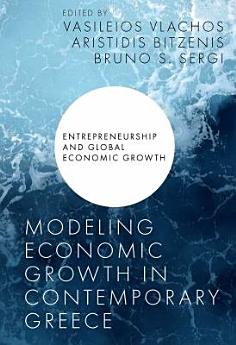Modeling Economic Growth in Contemporary Greece
About this ebook
The intrinsic properties of the Greek economic and business environment imply that there are country-specific factors responsible for the performance of the Greek economy, which is differentiated from its European counterparts. Despite being a member of the European Union since 1981 and one of the twelve first countries who adopted the euro, Greece has not been able to converge in crucial macroeconomic indicators with the early euro area Member States. The European stimulus package to support post COVID-19 recovery appears as a unique opportunity for Greece to develop a long-term vision and materialize reforms that will unlock the economy's true potential.
This latest book in the Entrepreneurship and Global Economic Growth series is centred around the determinants of and obstacles to Greece’s sustainable economic growth, presenting the macroeconomic and external environment and the dynamics of Greek economy and focuses onto internal conditions shaped by country-specific characteristics affecting labor and product markets’ efficiency and the performance of institutions and production factors.
About the author
Vasileios Vlachos is an Assistant Professor of Macroeconomics at the International Hellenic University (Department of Economic Sciences) and an Adjunct Lecturer in Business Administration at the Hellenic Open University.
Aristidis Bitzenis is a Professor of Global Entrepreneurship; FDI at the University of Macedonia (Department of International and European Studies) and an Adjunct Lecturer in Business Administration at the Hellenic Open University.
Bruno S. Sergi, Ph.D., has been teaching at Harvard University since 2011. At Harvard, he is also an Affiliate at the Center for International Development at the Kennedy School and an Associate of the Davis Center for Russian and Eurasian Studies and the Harvard Ukrainian Research Institute.





